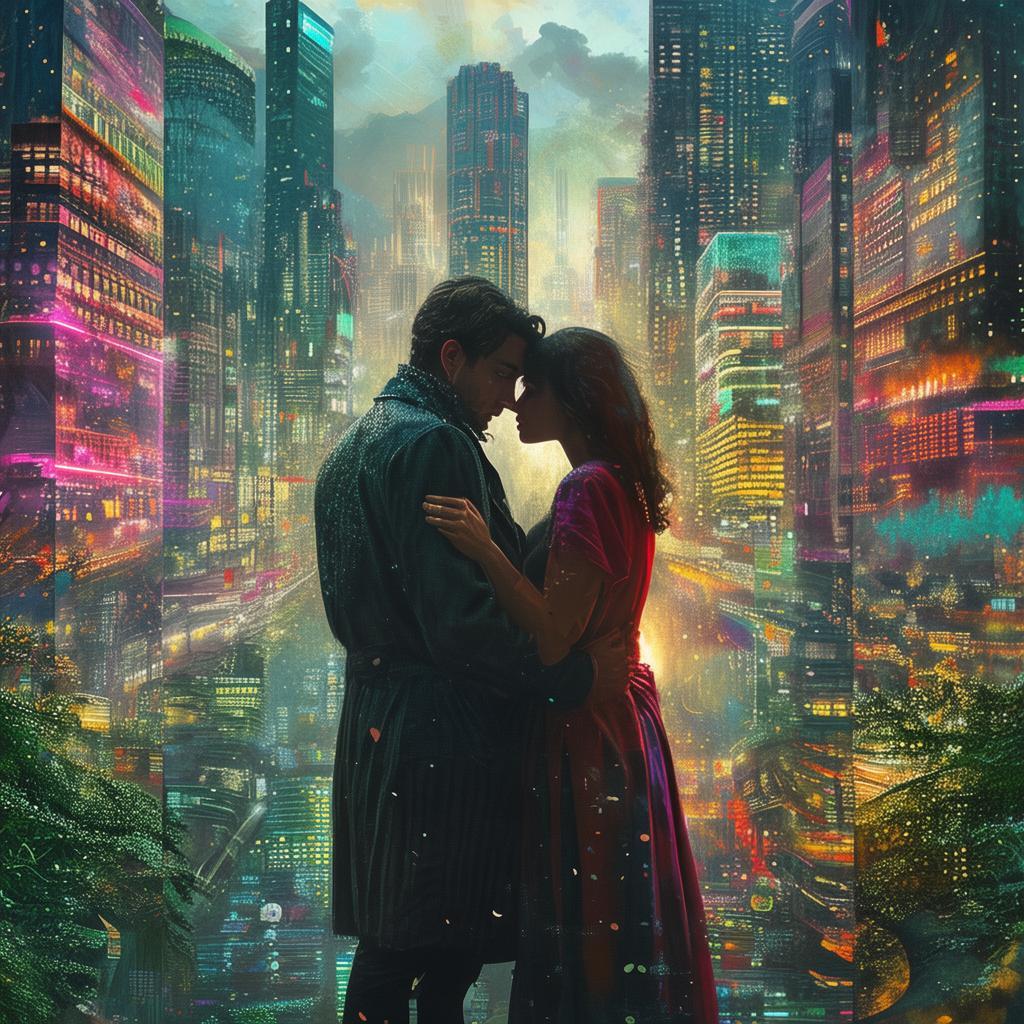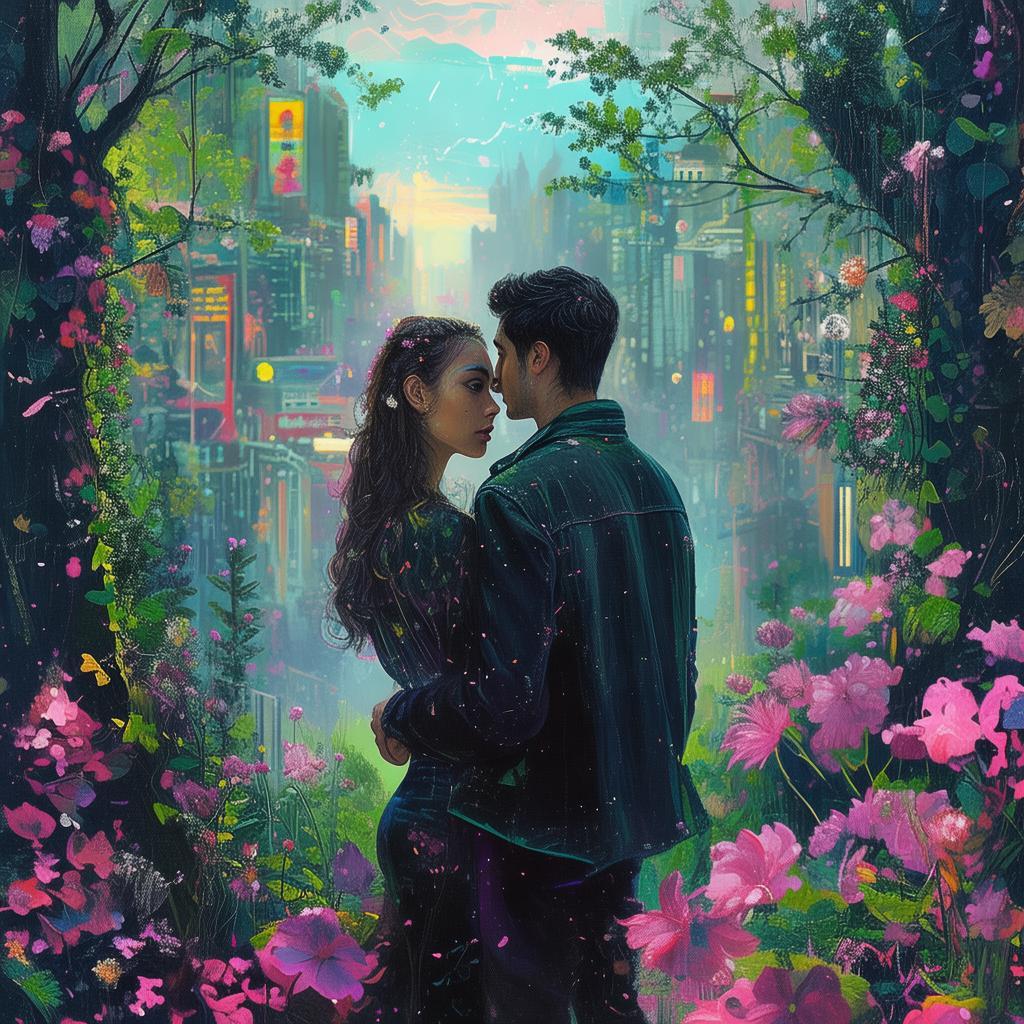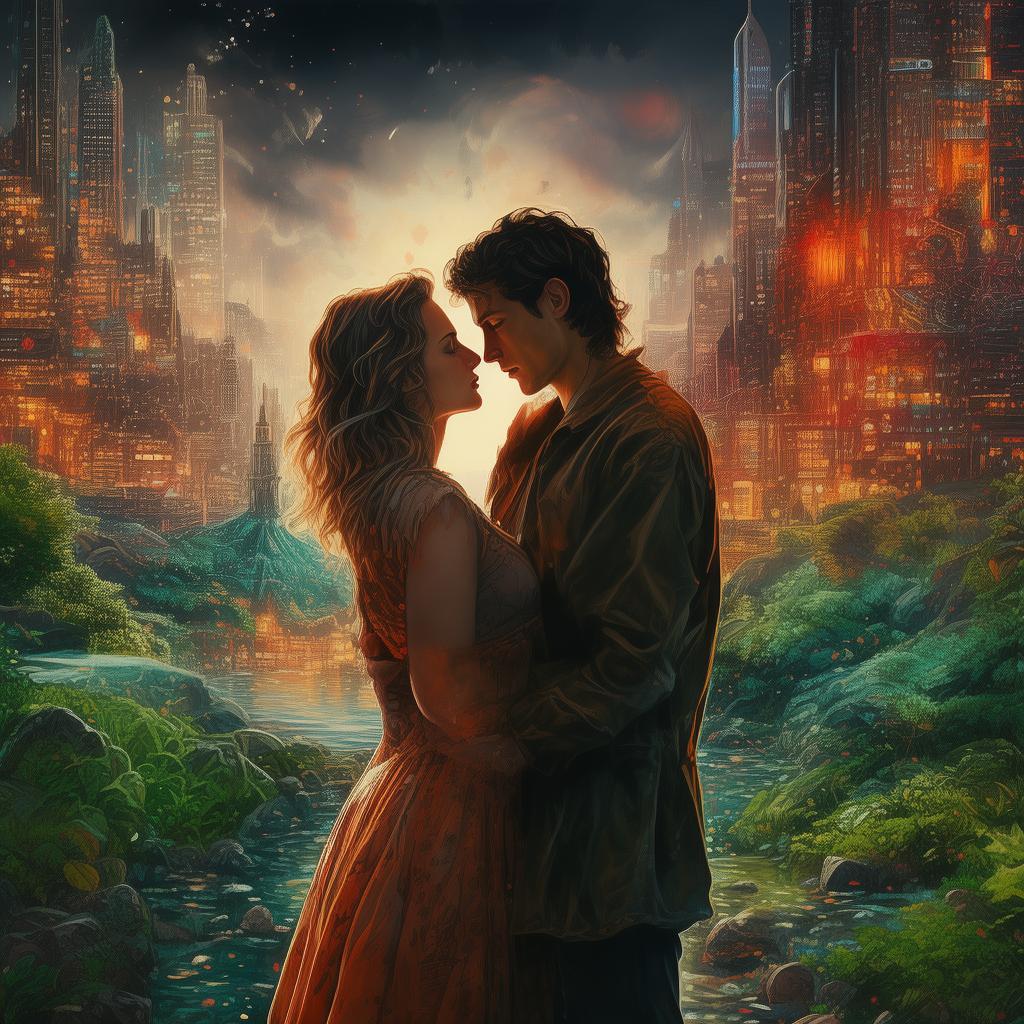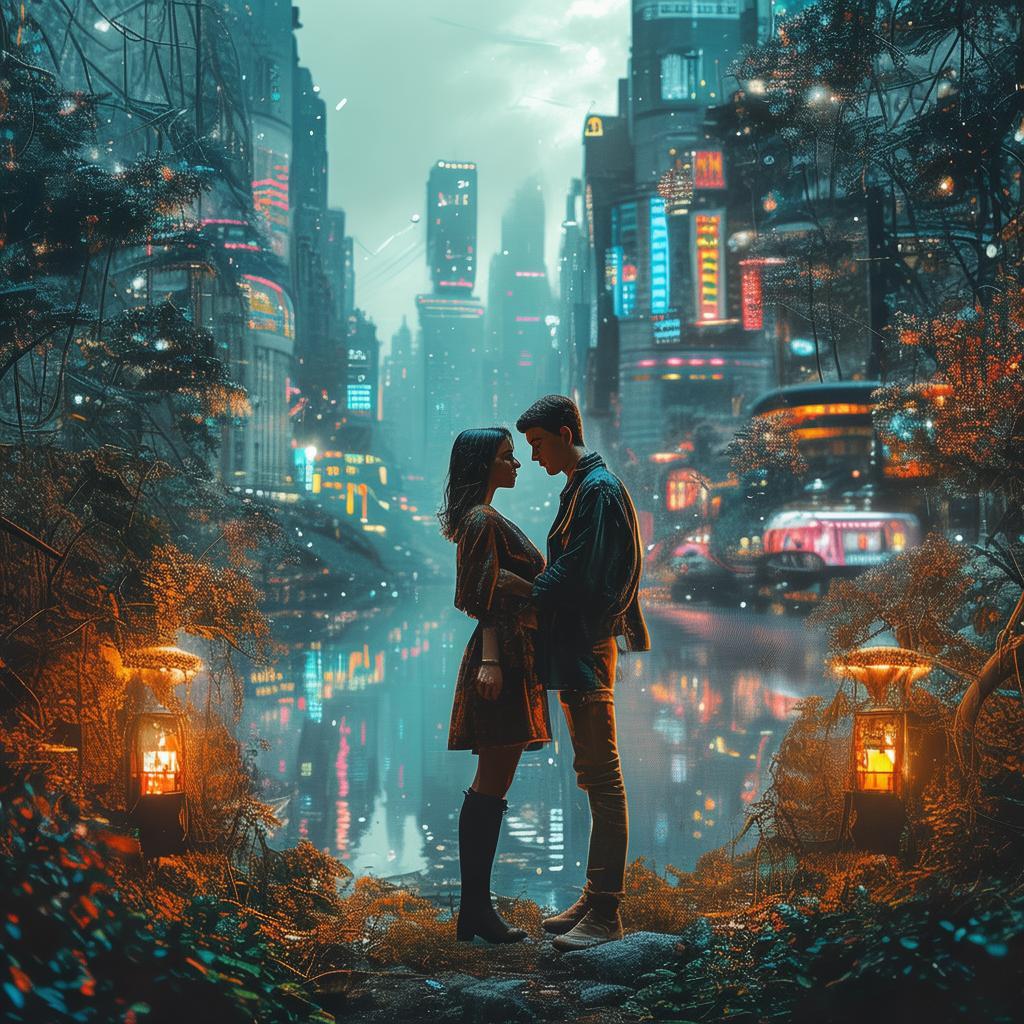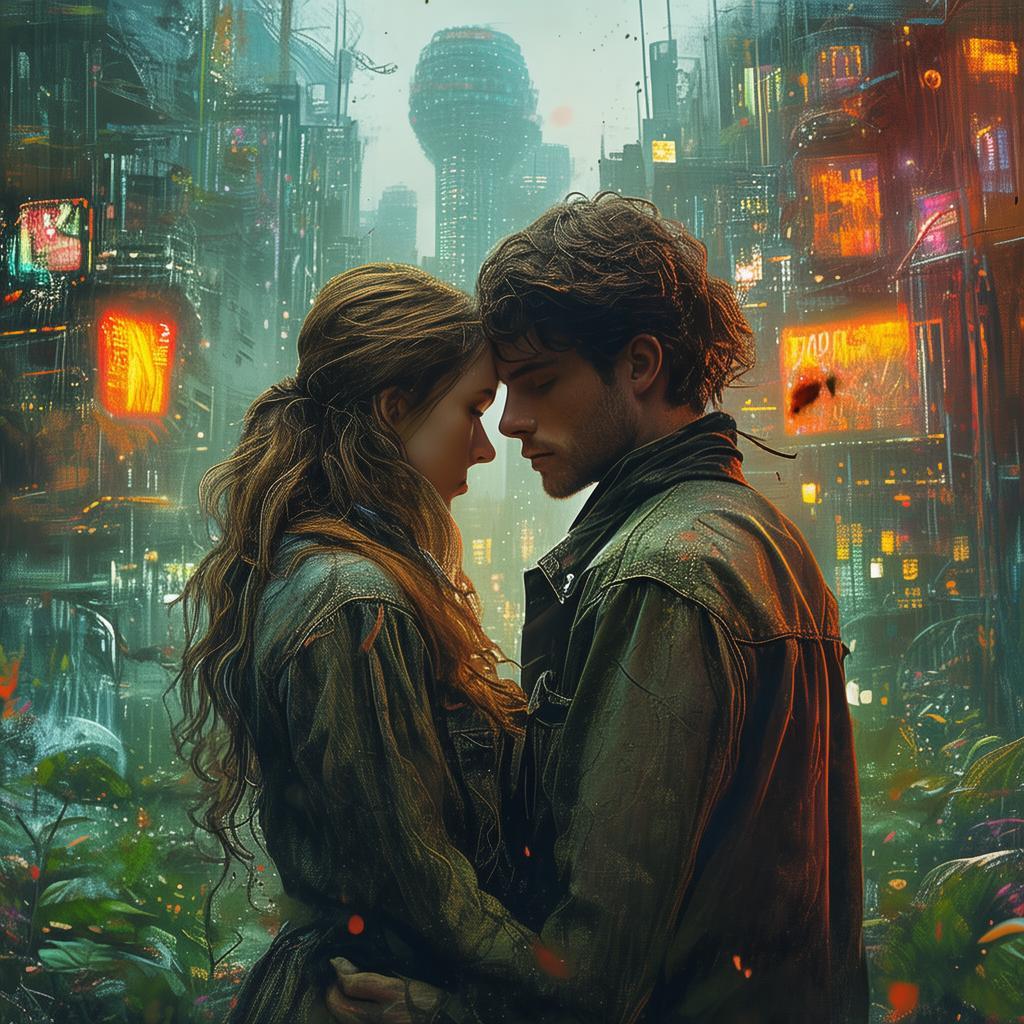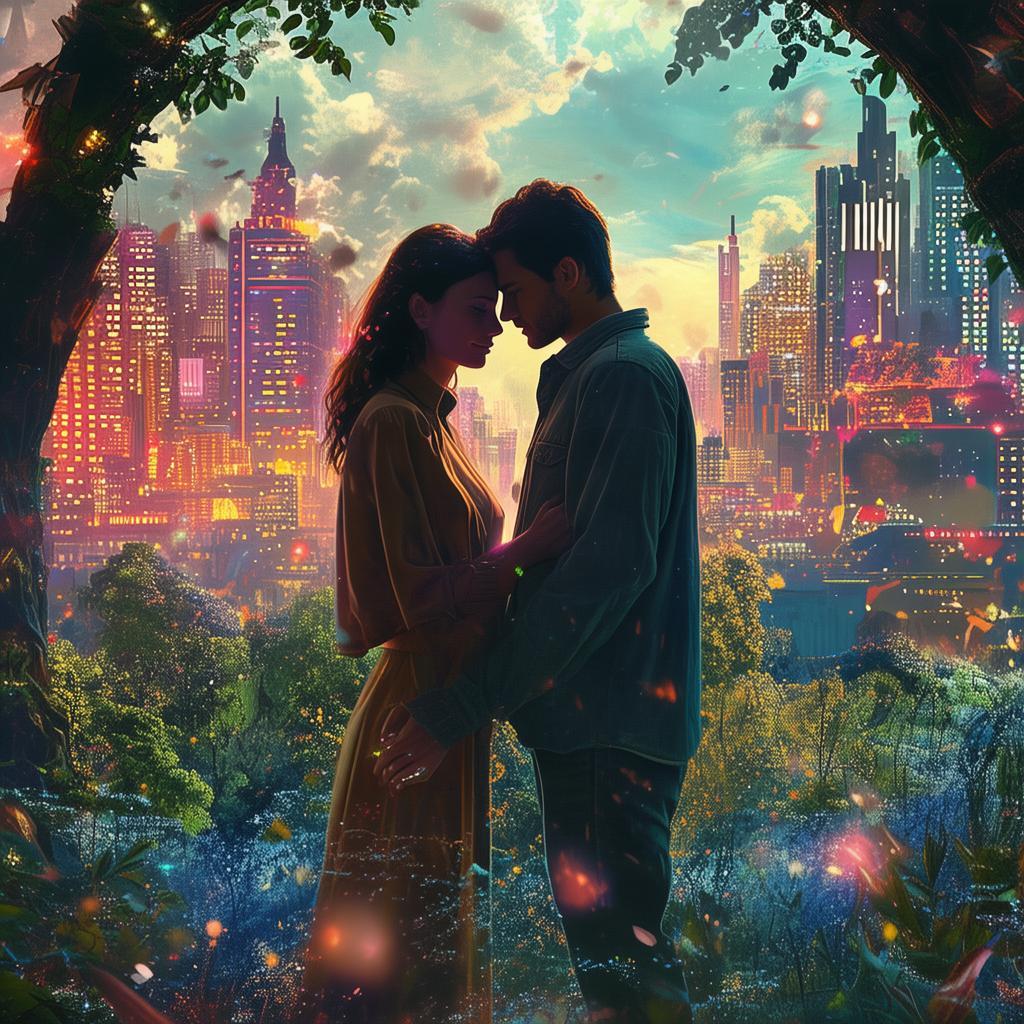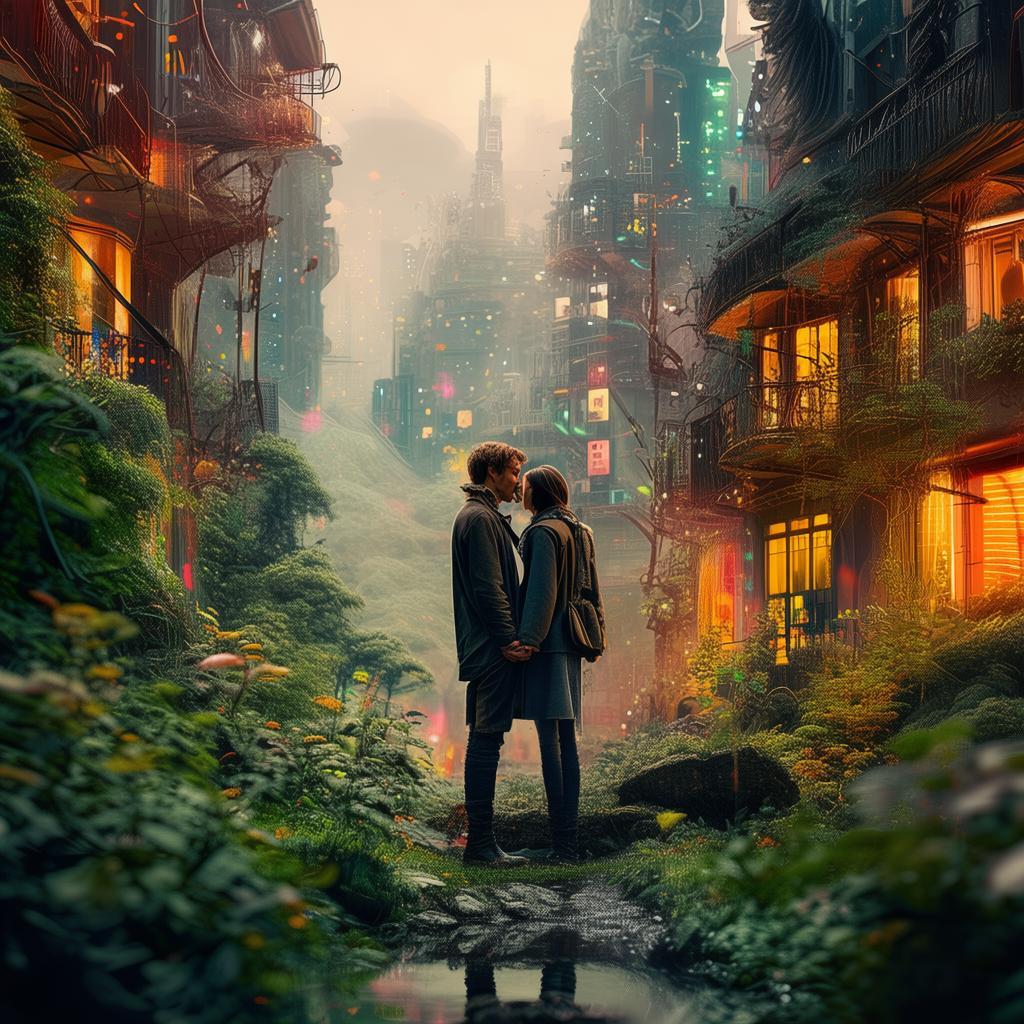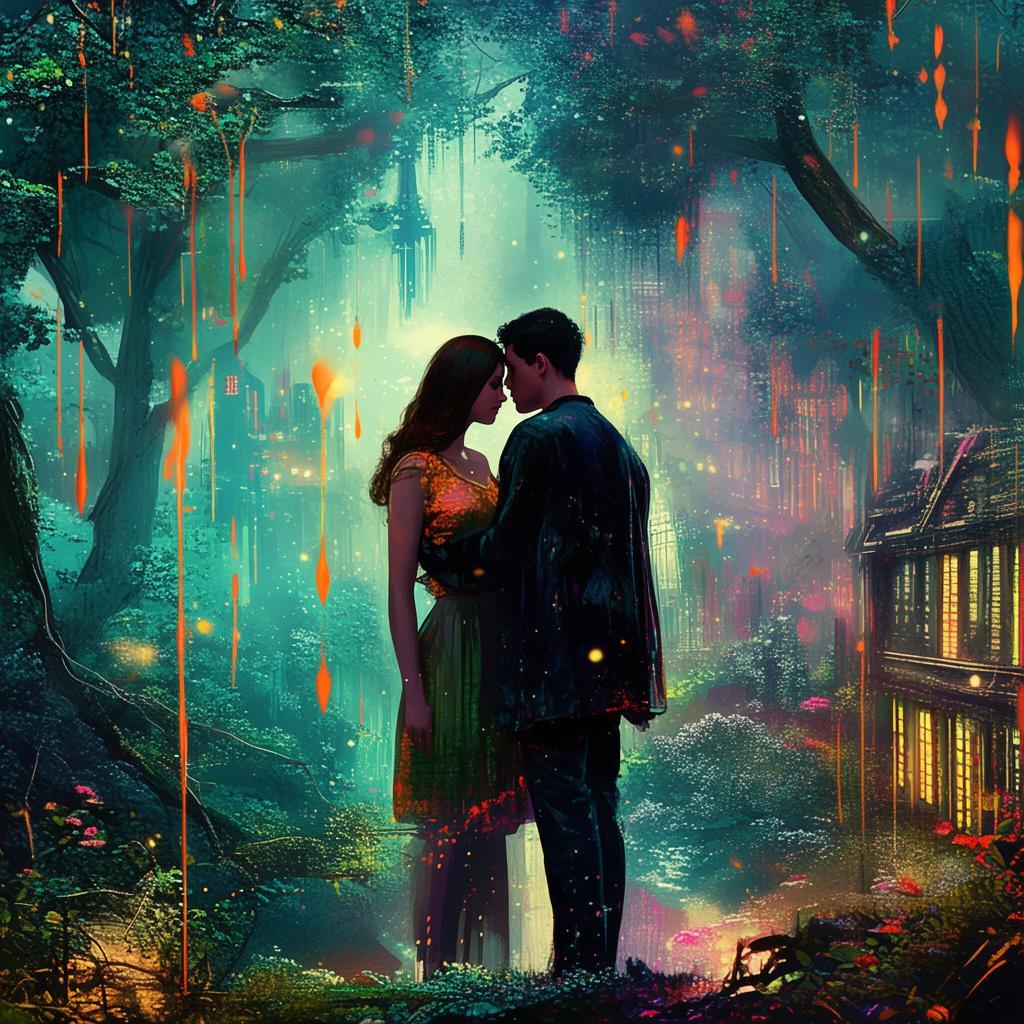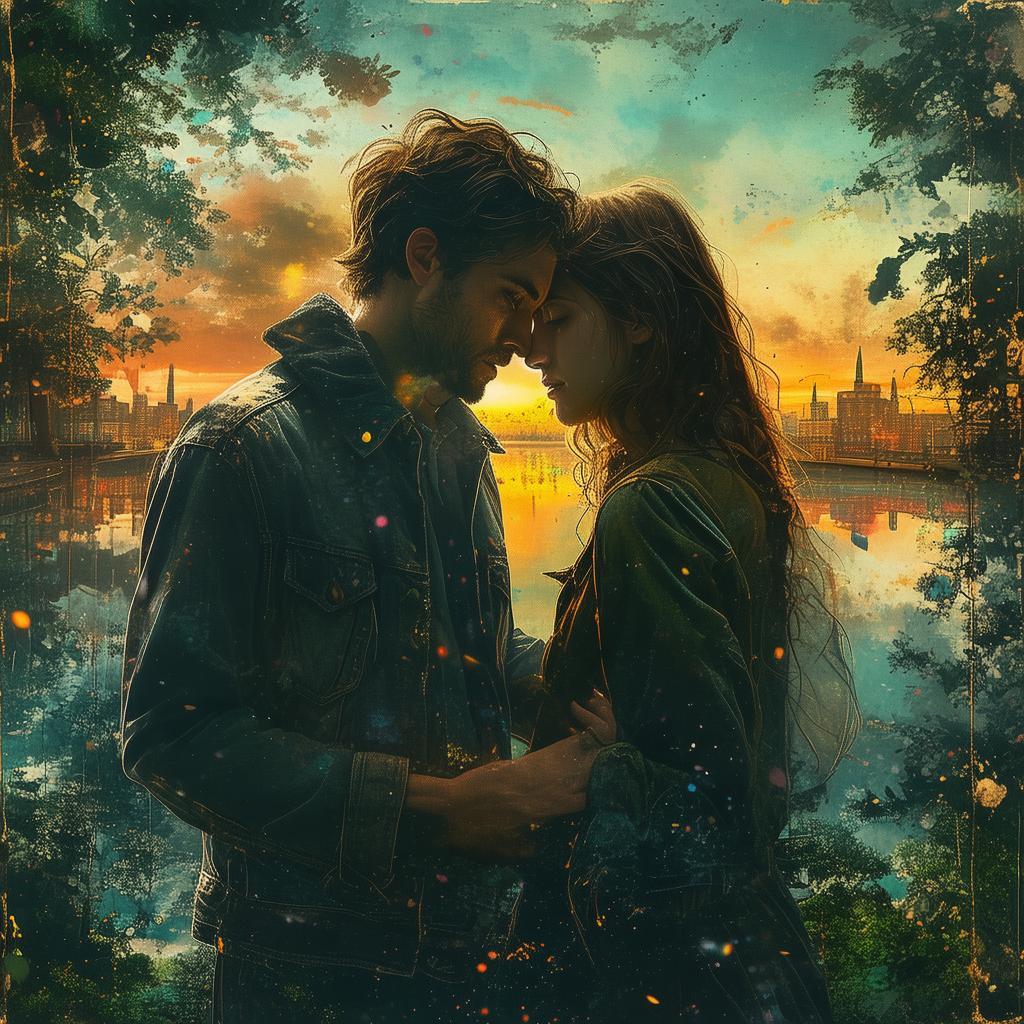The Rolling Stones' Rhythmic Revolution: A Love Story Unchained
In the heart of the 1960s, London was a city alive with the pulse of change. The Rolling Stones, a band on the cusp of fame, were not just revolutionizing music; they were becoming symbols of a generation's spirit. Among them was a young man named Alex, whose passion for the Stones' music mirrored his burning desire for a life of freedom and purpose.
Alex was a street musician, his guitar a testament to his soul's unbridled energy. He played in the shadow of the iconic Marquee Club, where the Rolling Stones often performed. It was there that he met Emily, a young woman with a voice that could move mountains and a heart that beat to the rhythm of the times.
Emily was a political activist, her days filled with protests and nights spent strategizing for the future. She was a vision of strength and vulnerability, and to Alex, she was the embodiment of the revolution he longed to be a part of.
Their love story began in the most unexpected way. One evening, as Alex played his guitar, Emily wandered into the club, her eyes drawn to the man who seemed to be in a world of his own. She approached him, her voice soft but determined, "I can't help but listen to you. You play like you're telling a story."
Alex, taken aback by her presence, replied, "I suppose I am. Every note is a chapter in the book of my life."
Their conversations were brief, but the connection was profound. They shared dreams of a world where music could be a weapon for change, where the power of love could transcend the barriers of politics and prejudice.
As the Rolling Stones rose to fame, so did the intensity of the political climate. The band's music, once a celebration of youth and freedom, began to take on a more rebellious tone. Alex and Emily found themselves at the center of it all, their love tested by the very revolution they were a part of.
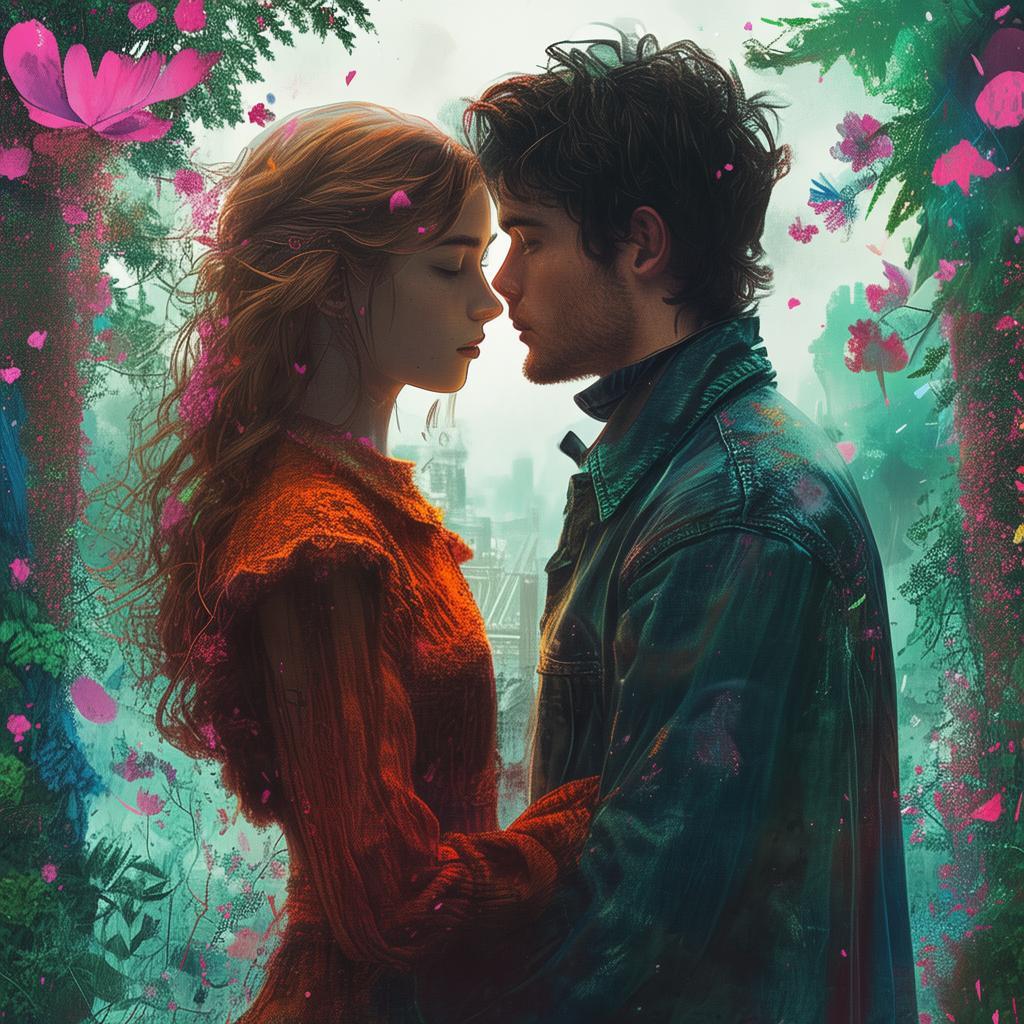
One night, as they walked through the streets of London, a voice echoed through the air, "The revolution is not a dinner party, or an evening at the opera." They turned to see a group of protesters, their faces illuminated by the flickering flames of a bonfire.
Emily's eyes met Alex's, and in that moment, she knew what she had to do. "We have to be the change we want to see," she said, her voice steady. "Our music can be the voice of the people."
Alex nodded, his heart swelling with pride and love. "Then let's make it so."
The couple began to use their platform to amplify the voices of the marginalized. They performed at protests, their music a powerful tool for mobilizing the masses. Their love story became a testament to the power of unity and the belief that love could indeed change the world.
But as the revolution gained momentum, so did the opposition. The government grew weary of the unrest, and the band found themselves under scrutiny. Alex and Emily were no longer just lovers; they were symbols of a movement.
One fateful night, as they performed at a massive rally, a bomb exploded in the crowd. In the chaos that followed, Alex was injured, his guitar lying broken at his feet. Emily, with her voice as a beacon, led the crowd in a song of solidarity and hope.
As Alex lay in the hospital, his thoughts turned to Emily. He realized that the revolution was not just a political one; it was a personal one, a fight for their love and for the world they believed in.
When he finally recovered, he found Emily waiting for him. "I thought I lost you," he said, his voice trembling.
"I thought I lost you too," she replied, her eyes brimming with tears. "But we're not alone. We have each other and the power of our music."
With renewed strength, they returned to the stage, their music a force that could not be stopped. The Rolling Stones' Rhythmic Revolution had become a love story, a political romance that had changed the world.
The band's music continued to evolve, but the message remained the same: love, freedom, and the belief that together, they could overcome any obstacle.
And so, amidst the echoes of revolution and the rhythms of change, Alex and Emily's love story continued, a testament to the enduring power of music and the unbreakable bond of true love.
✨ Original Statement ✨
All articles published on this website (including but not limited to text, images, videos, and other content) are original or authorized for reposting and are protected by relevant laws. Without the explicit written permission of this website, no individual or organization may copy, modify, repost, or use the content for commercial purposes.
If you need to quote or cooperate, please contact this site for authorization. We reserve the right to pursue legal responsibility for any unauthorized use.
Hereby declared.
